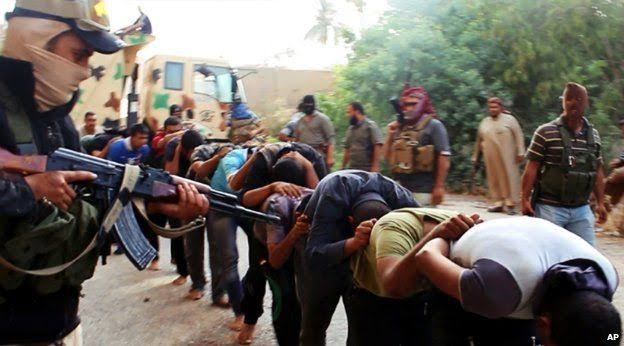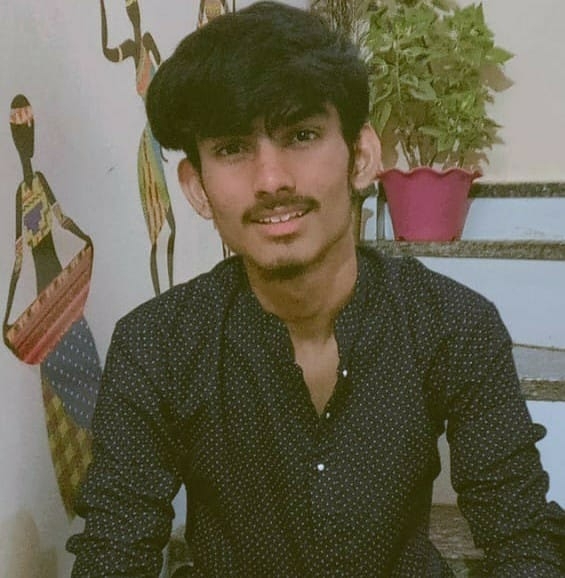Islamic despotism—Abuse on humans : Human Rights Violation in Iran and ISIS
From on 1979 when the Islamic despotism took the administration under its control the Iranian regime routinely punished/punishes activists, women and religious and ethnic minorities for practicing life, for living.

This is the fourth article in a series of five articles where we delve into a comprehensive analysis of human rights abuses occurring within communist dictatorships and Islamic regimes. In this article, we'll shed light on the impact of Islamic regimes, primarily in Iran and ISIS' controlled area, where we examine how common people are affected and the multifaceted ways in which they experience exploitation, encompassing economic, social, cultural, and psychological aspects. Through this article series we'll uncover the realities and shed light on human rights violations in different contexts.
The Islamic regime in Iran is the world’s leading state sponsor of terror, for over 40 years their malign behaviour and support for terrorist practices has spread across the region.
From on 1979 when the Islamic despotism took the administration under its control the Iranian regime routinely punished/punishes activists, women and religious and ethnic minorities for practicing life, for living.
Lately the Iran’s Islamic rule was derided by the whole world as an unprecedented popular uprising which rocked Iran from September 2022, as an innocent young woman was murdered by Islam, for not wearing her hijab properly.
Freedom of expression and Press
Iran has strict restrictions on freedom of expression and press. Journalists, bloggers, and activists face harassment, intimidation, and imprisonment for expressing dissenting views or criticizing the government.
The authorities censor media, block satellite television channels and, from September 2022, added Instagram and WhatsApp to the list of blocked and/or filtered mobile apps and social media platforms, which included Facebook, Signal, Telegram, Twitter and YouTube.
The authorities repeatedly shut off or disrupted internet and mobile phone networks during protests to suppress mobilization and hide the scale of violations by security forces.
Death Penalty & Execution
In Iran, authorities use the death penalty and execution as a tool of political repression against protesters, dissidents and minorities. Iran has highest rates of executions in the world, including for offenses not meeting international standards of “most serious crimes.”
According to a report by Sweden-based Iran Human Rights, 307 people have been executed in Iran which is 75 per cent more than last year. The horrific figures show that in May, four people were hanged every day in the Islamic Republic.
Status of Women
Women’s Rights in Iran have been severely restricted since the rise of Islamic despotism in Iran. Women there regardless of their ethnicity and religion are being widely persecuted and discriminated both by the administration and society.
The authorities treat women as second-class citizens, including in relation to marriage, divorce, child custody, child marriage, employment, inheritance and political office.
Persecution, discrimination, harassment, imprisonment and much more is what through the women in Iran, identifies herself.
Under the rule of Islam Iran sees no end to agony of women.
Iranian Women are forced to cover their hair and bodies in public; violations can result in punishment, including fines and harassment and even death by morality police. The enforcement of these laws has been a source of continued controversy and protests.
Arbitrary Detentions and Unfair trials
Thousands of people are being arbitrarily detained and unfairly prosecuted since the formation of Islamic republic ; for peacefully exercising their human right.
The authorities are always found guilty for suppressing civil society, subjecting hundreds of human rights defenders, lawyers, journalists, political dissidents, activists, conservationists, writers, artists, musicians, university students and schoolchildren, to arbitrary detention or unjust prosecution.
(According to a leaked audio-recorded official statement, between 15,000 and 16,000 people were detained during the first weeks of the Mahsa Amini protests uprising. The authorities continued mass arbitrary arrests until the end of the year 2022 and subjected many to unjust prosecutions and unfair trials.)
Religious and Ethnic Minorities
Religious and ethnic minorities in Iran not only face serious societal discrimination and barriers, since their birth , but also legal apartheid.
Ethnic minorities, including Ahwazi Arabs, Azerbaijani Turks, Baluchis, Kurds and Turkmen, face widespread discrimination, curtailing their access to education, employment, adequate housing and political office.
Religious minorities, including Baha’is, Christians, Gonabadi Dervishes, Jews, Yaresan and Sunni Muslims, suffer discrimination in law and practice, including in access to education, employment, child adoption, political office and places of worship.
Hundreds are arbitrarily detained, unjustly prosecuted, tortured or ill-treated and/or subjected to other forms of harassment for professing or practising their faith.
People born to parents classified as Muslim by the authorities risk arbitrary detention, torture or the death penalty for “apostasy” if they adopted other religions or atheism.
ISIS (Islamic State Of Iran and Syria or Levant)
Islamic state is a transnational militant Islamist group , responsible for the deaths of millions. Human rights in the territory controlled by the Islamic State (ISIL/ISIS) are been harshly criticized by many political and religious organisations, as well as by many individuals.
Genocide, Torture , Slavery, Radicalization are the stones on which ISIS is established. The United Nations Commission on Human Rights (UNCHR) has stated that the Islamic State “seeks to subjugate civilians under its control and dominate every aspect of their lives through terror, indoctrination, and the provision of services to those who obey”.
The territories in Iraq and Syria, which was occupied by the Islamic State and claimed as part of its self-dubbed “Caliphate”(institution or public office under the leadership of an Islamic steward) saw the creation of one of the most criminally active, corrupt and violent regimes in modern times, and it ruled that territory until its defeat.
The ISIS organization and regime murdered tens of thousands of civilians, kidnapped several thousand people, and forced hundreds of thousands of others to flee. ISIS systematically commits torture, mass rapes, forced marriages, extreme acts of ethnic cleansing, mass murder, genocide, robbery, extortion, smuggling, slavery, kidnappings, and the use of child soldiers; in ISIS’ implementation of strict interpretations of Sharia law which were based on ancient eighth-century methods, they carried out public “punishments” such as beheadings, crucifixions, beatings, mutilation and dismemberment, the stoning of both children and adults, and the live burning of people.
{ISIS committed mass rape against tens of thousands of children, mostly girls and women (mainly members of non-Sunni or non muslim minority groups and families}
Several human rights organizations and peace organizations, including Human Rights Watch, the United Nations and Amnesty International, have deemed ISIS guilty of crimes against humanity, and they have also accused the whole ISIS organization of being a criminal organization, one which has committed some of the most severe war crimes since World War II.
Amnesty International has held ISIL responsible for the ethnic cleansing of ethnic and religious minority groups in northern Iraq on a “historic scale”. It issued a special report in late 2014 describing how ISIL has “systematically targeted non-Arab and non-Sunni Muslim communities, killing or abducting hundreds, possibly thousands, and forcing more than 830,000 others to flee the areas it has captured since 10 June 2014.”
Among these people are Assyrian Christians, Turkmen Shia, Shabak Shia, Yazidis, Kaka’I and Mandaeans, who have lived together for centuries in Nineveh province, large parts of which are now under ISIL’s control.

contemplating society and politics through cultures

